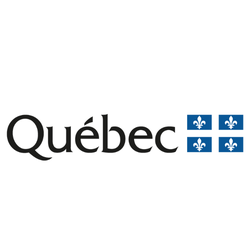
Open
Local investment fund
Last Update: October 27, 2025
QC, Canada
Loans for entrepreneurs in Quebec
Loans and Capital investments
At a glance
Funding available
Financing goals
Integrate new technologies
Develop an online presence
Reduce the ecological footprint
See more
Eligible Funding
- Maximum amount : 150,000 $
- Up to 50% of project cost
Timeline
- Open Date : January 1, 2023
- Closing date : December 31, 2025
Eligible candidates
Eligible Industries
- All industries
Location
- Quebec
Legal structures
- For-profit business
- Social economy enterprise
- Non-financial cooperative
Annual revenue
- All revenue ranges
Organisation size
- All organization sizes
Audience
- Startups
Overview
Loans and loan guarantees to start or expand a business, or purchase at least 25% of an existing business, in Quebec.
Activities funded
- Startup projects for new businesses in the commercialization phase.
- Projects focused on business improvement and transformation, including productivity enhancement, digital transformation acceleration, and implementation of sustainable organizational practices.
- Business growth and expansion projects, supporting investment in the expansion of established enterprises.
- Entrepreneurial succession projects involving the acquisition of significant ownership or assets for business succession and continuity.
Examples of admissible projects:
$ 150,000
Acquiring a 30% stake in a childcare center
$ 150,000
Scaling up a local organic farm by acquiring new machinery
$ 100,000
Digitizing the wholesale inventory management system for a small business
$ 150,000
Opening a new eco-friendly co-working space
$ 150,000
Launching an artisan bakery with digital solutions
$ 150,000
Establishing a community arts center with digital workshops
Eligibility
- The applicant must be a legally constituted for-profit business under the laws of the Government of Quebec or Canada, or a collective enterprise (cooperative or non-profit with commercial activity).
- The organization must be legally constituted in Quebec, conduct business in Quebec, and operate an enterprise there, regardless of its constitutive law.
- The applicant must not be, or use the services of, subcontractors listed on the Registry of Enterprises Ineligible for Public Contracts (RENA).
- The applicant must have met all prior financial aid obligations from the Government of Quebec or a regional county municipality (MRC) for at least two years.
- The applicant must not be a state corporation, or controlled directly or indirectly by a government (municipal, provincial, or federal), a municipal entity, or a company majority-owned by a state corporation.
- The applicant must not be undergoing bankruptcy or insolvency proceedings.
- The applicant must comply with the investment policy of the relevant MRC.
- The applicant must not have committed ethical violations or offer products/services that could harm the integrity or reputation of the Government of Quebec.
Who is eligible?
- For-profit companies legally incorporated under the laws of Quebec or Canada
- Collective enterprises such as cooperatives with commercial activity
- Non-profit organizations (NPOs) with commercial activity
Who is not eligible
- State-owned enterprises or companies directly or indirectly controlled by a government (municipal, provincial, or federal).
- Entities controlled by a municipal entity.
- Companies majority-owned by a state-owned enterprise.
- Companies or subcontractors registered on the Register of enterprises ineligible for public contracts (RENA).
- Businesses in a situation of bankruptcy or insolvency.
- Organizations that have not fulfilled obligations related to previous financial aid from the Government of Quebec or the Regional County Municipality (MRC) for at least two years.
- Businesses engaged in unethical conduct or offering products or services that may compromise the integrity or probity of the Government of Quebec.
- Companies not eligible under the investment policy of the respective MRC.
Eligible expenses
- Additional working capital required for the project, justified and reasonable, for up to two years.
- Capital expenditures directly related to project execution, including acquisition of technology, land, buildings, equipment, machinery, and rolling stock.
- Construction, expansion, renovation, and layout of land and premises directly tied to the project.
- Professional fees for activities prior to project execution, such as feasibility analyses, external audits, or impact studies.
- Professional fees directly related to implementing technologies, equipment, machinery, or developing premises.
- Acquisition costs for business ownership (voting shares or equity) and assets in cases of business succession.
- Professional fees directly related to the transaction, acquisition, and management transfer for business succession.
Eligible geographic areas
- All regions and municipalities within the province of Quebec, as managed by their respective Regional County Municipalities (MRCs) or local economic development organizations.
How to apply
1
Eligibility Check
- Make sure that your business meets the eligibility criteria detailed in the appropriate section.
- Check that your project is also eligible according to the defined project types (startup, improvement, transformation, etc.).
2
Preparation of the required documents
- Gather all the necessary documents to justify your request (feasibility study, impact analysis, etc.).
- Prepare a financing plan detailing the costs and funds required.
- Ensure that all documents are up to date and meet the requirements of the MRC in your region.
3
Contact the MRC or the responsible organization
- Contact the MRC, the municipal office, or the organization responsible for managing the local investment fund in your area for specific information.
- Check the specific terms and any updates to the local investment policies.
4
Submission of the request
- Compile your complete application file with all the required documents.
- Submit your application, in person or by the means indicated by your MRC, within the given deadlines.
5
Follow-up of the request
- Make sure to receive an acknowledgment of receipt of your submission from the MRC or the relevant organization.
- Be prepared to provide additional information if required during the analysis of your request.
Additional information
- Management and specific terms of the Local Investment Fund may vary depending on the policy of each Regional County Municipality (MRC).
- The assistance modalities are in effect until December 31, 2025.
- The most recent update to the program details was published on June 22, 2023.
Apply to this program
Frequently Asked Questions about the Local investment fund Program
Here are answers to the most common questions about the Local investment fund. This section explains what the program is, how much funding is available, eligibility requirements, application deadlines, and other important details to help you determine if this grant is right for your business.
What is the Local investment fund?
How much funding can be received?
What is the deadline to apply?
Who is eligible for the Local investment fund program?
What expenses are eligible under Local investment fund?
Who can I contact for more information about the Local investment fund?
Where is the Local investment fund available?
Apply to this program
More programs like this

Grant and FundingClosed
PSCE – Component 2
Investissement Québec (IQ)Non-repayable funding to support SMEs’ export market diversification

Grant and FundingClosed
MAPAQ — Food Processing Program — Component 2
Ministry of Agriculture, Fisheries and Food (MAPAQ)Enhancing productivity through food industry automation assistance

Grant and FundingOpen
ESSOR – Component 1C: Support for investment projects (implementing a digital plan)
Investissement Québec (IQ)Support for investment projects in Quebec

Grant and FundingOpen
SCALE AI — Acceleration
Scale AI ClusterSupports Canadian AI startups and SMEs focused on value chains

Tax CreditsOpen
Development of E-Business Tax Credit (CDAE)
Investissement Québec (IQ)Tax credit for development of a Quebec e-business

Tax CreditsOpen
Research, Innovation and Commercialization Tax Credit (CRIC)
Gouvernement du QuébecRefundable tax credit for Quebec business R&D and precommercialization

Grant and FundingOpen
Support for biofood exports - individual projects
Ministry of Agriculture, Fisheries and Food (MAPAQ)SEB supports Quebec agri-food market expansion outside Quebec

Grant and FundingSuspended
Individual Market Access Support (SIAM)
Aliments du QuébecMarket Access Support for Quebec Food Processors

Expert AdviceLoans and Capital investmentsOpen
Panorama Program
Investissement Québec (IQ)Supports export diversification with financial services and expert guidance

Loans and Capital investmentsOpen
Financing to respond to the offensive of new tariffs and for initiatives for resilient and exporting companies (FRONTIERE)
Investissement Québec (IQ)Supports Québec exporters impacted by new U.S. tariffs
Sign up to our platform to access the Local investment fund information sheet for free
Get access to 4,000+ programs, practical guides, personalized alerts, and an AI assistant to support your grant applications.